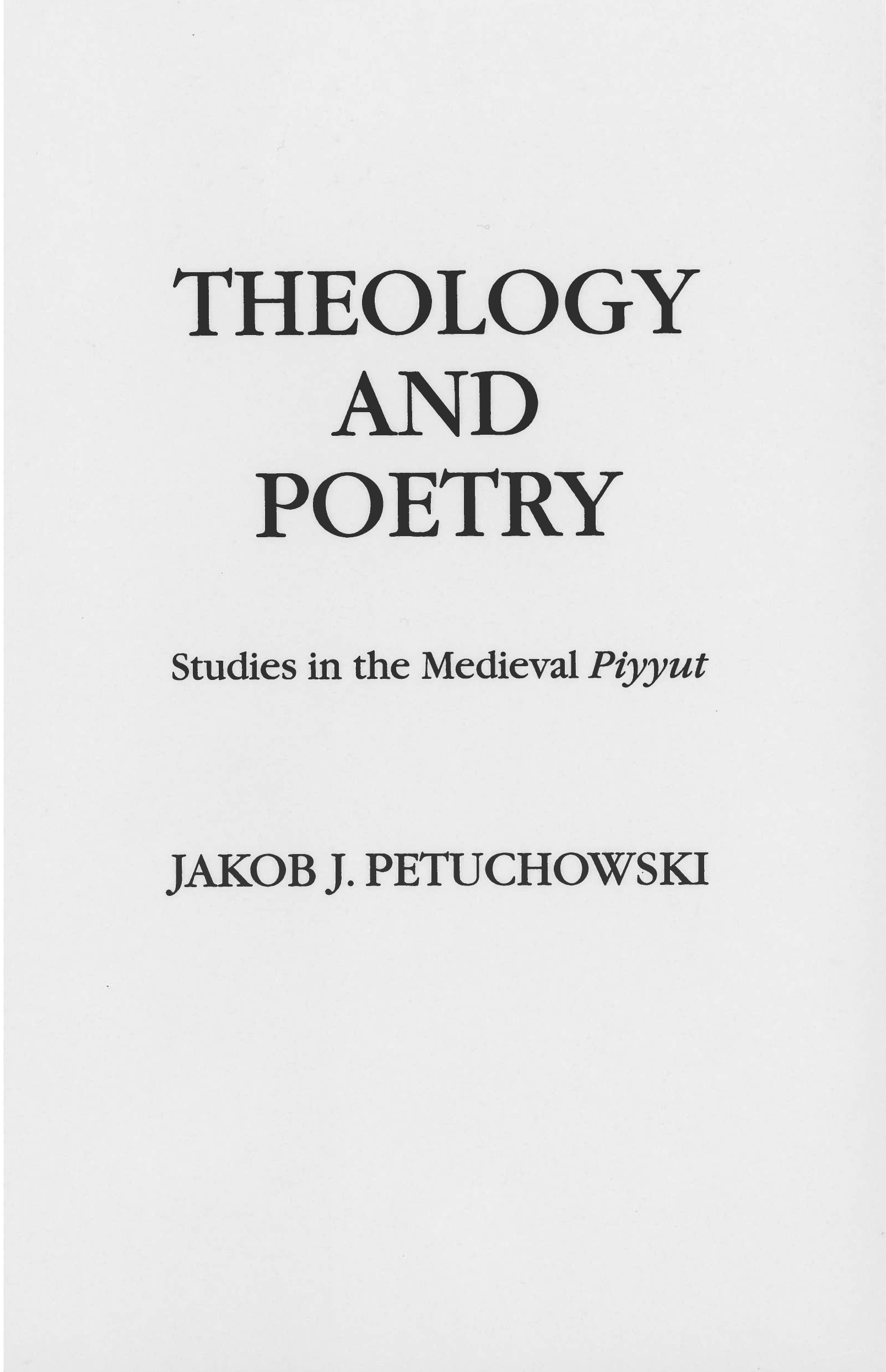Jakob J. Petuchowski
Theology is, by definition, rational discourse about God and, by extension, the rational discourse about religious matters in general. Humans are rational—though not only rational—creatures and, as such, they are ever striving to verbalize, to rationalize, and to systematize. But, if theology is rational discourse about a primary experience rather than experience itself, we are faced with the problem of whether theology can really do full justice to the primary experience. Theologians have often list sight of the fact that theology is an interpretive discipline, that the primary source of religious knowledge is human experience, and that we have in our experience only hints and intimations of God.
The images and nuances of poetry may be better suited than logical discourse for capturing these hints and intimations. Alongside its technical theological tractates, Judaism has always had its prayerbook, and the language of prayer is the language of poetry. Theological systems may come and go, but the theology that is translatable into liturgy remains. Liturgical poems expressing the unconventional and the idiosyncratic share the same prayerbook pages with conventional theology, just as conflicting ideas had always shared the same pages of Talmud and Midrash, where no uniformity of theological positions was ever enforced. Ibn Ezra’s advice to “pray only in a literalist manner” was hardly the advice by which Jews let themselves be guided. The poetry of the synagogue proves it.
The traditional Jewish liturgy contains not only the standard prayers ordained in the Talmud and the ritual codes, but also poetic embellishments of all kinds. Such poetic embellishments, or piyyutim, take the form of hymns to be sung in conjunction with the standard prayers, and of poetic inserts in the standard prayers themselves. Jakob Petuchowski presents ten such poems in pointed Hebrew, with translation, commentary, and introduction to the theological theme of each poem. The poems—ranging from the sixth to the fourteenth centuries and hailing Palestine, Spain, France, Germany, and Italy—introduce the reader to innovative poetic expressions of unconventional and daring theological ideas that have been incorporated into the standard liturgy. This reprint edition is an indispensible introduction to piyyut (medieval liturgical poetry) for all students of Jewish thought and culture.
Jakob J. Petuchowski served as faculty member in rabbinics, theology and liturgy, and Judeo-Christian studies at HUC-JIR, Cincinnati.

